

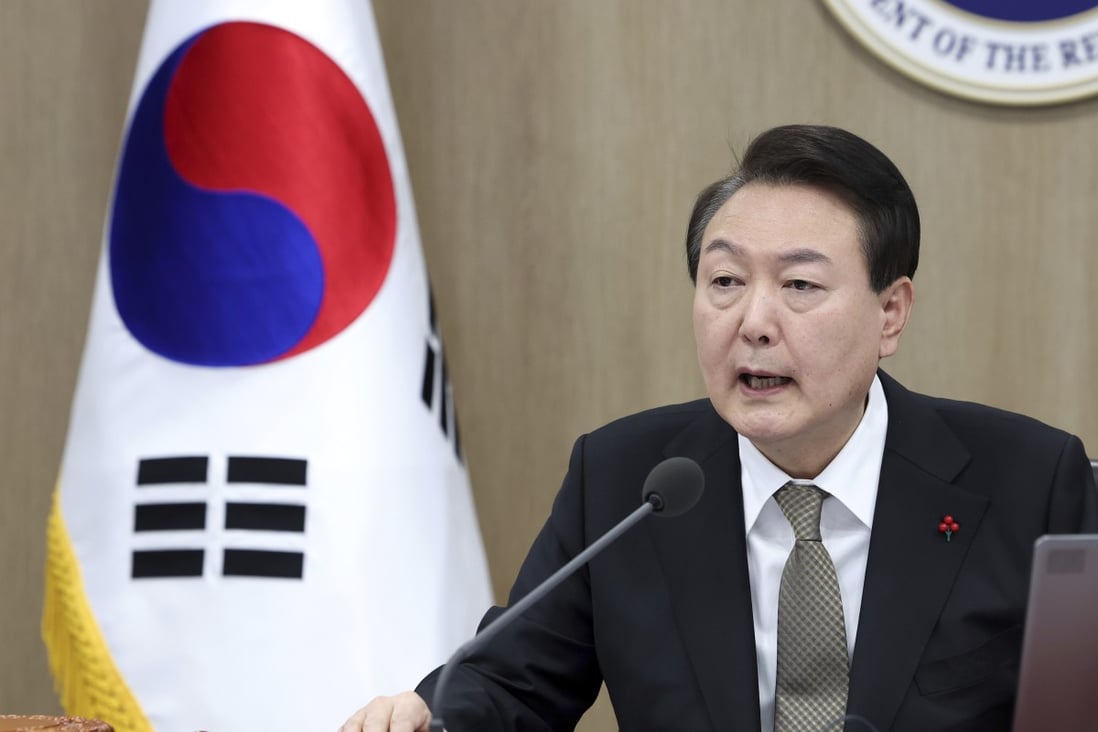
In a move to protect his country from the threats posed by North Korea's communist forces, South Korean President Yoon Suk-yeol has ordered measures to eliminate anti-state elements. The decision comes amid ongoing tensions between the two nations and raises concerns about potential future conflicts. The move has sparked debate and speculation over the effectiveness and consequences of such actions.
South Korea Cracks Down on Anti-State Elements Amid North Korean Tensions
South Korean President Yoon Suk-yeol has ordered measures to eliminate anti-state elements in a move to protect his country from the threats posed by North Korea's communist forces. The decision comes amid ongoing tensions between the two nations and raises concerns about potential future conflicts.
Background:
Tensions between North and South Korea have been simmering for decades, with the two nations technically still at war since the Korean War ended in 1953 with an armistice, not a peace treaty. North Korea has repeatedly threatened South Korea with military action and has conducted nuclear and missile tests in violation of UN resolutions.
South Korea has long maintained a military alliance with the United States, which has stationed troops in the country since the Korean War. In recent years, the US has increased its military presence in the region in response to North Korea's provocations.
The Crackdown:
President Yoon's order targets individuals and organizations deemed to be a threat to national security. The measures include:
The move has sparked debate and speculation over its effectiveness and consequences. Critics argue that the crackdown is too broad and could lead to human rights violations and political repression. Supporters argue that it is necessary to protect the country from external threats and prevent internal subversion.
Concerns About Conflict:
The crackdown has raised concerns about the possibility of future conflicts between North and South Korea. Some analysts believe that the South's actions could provoke a military response from the North, which has a history of aggression.
Others argue that the crackdown is a necessary step to deter North Korea's provocations and maintain stability in the region.
Top 5 FAQs and Answers:
1. What are anti-state elements? Anti-state elements refer to individuals or organizations that are perceived as a threat to the national security or stability of a country. These may include political dissidents, activists, and organizations that advocate for radical or revolutionary changes.
2. Why is South Korea cracking down on anti-state elements? South Korea is cracking down on anti-state elements in response to the continued threats posed by North Korea's communist forces. The government believes that these elements could be used by North Korea to destabilize South Korea or undermine its national security.
3. What are some examples of anti-state activities? Anti-state activities can include political dissent, criticism of the government, espionage, sabotage, and terrorism.
4. How will the crackdown affect freedom of expression and assembly in South Korea? The crackdown may lead to restrictions on freedom of expression and assembly in South Korea. The government has stated that it will take measures to prevent anti-state elements from using these freedoms to threaten national security.
5. What are the potential consequences of the crackdown? The crackdown could have several potential consequences, including human rights violations, political repression, and increased tensions between North and South Korea.
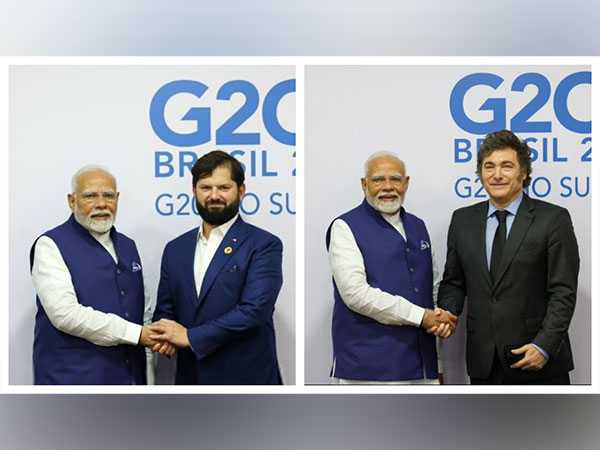
Indian Prime Minister Narendra Modi welcomed Chilean President Gabriel Boric at Hyderabad House in New Delhi. The two leaders discussed ways to strengthen the already "strong" bilateral ties between the two countries. President Boric also paid tribute to Mahatma Gandhi at Raj Ghat, emphasizing the shared fundamental values between India and Chile. This is President Boric's first visit to India since taking office and he is accompanied by a high-level delegation of ministers, officials, media, and prominent Chileans.

Chilean President Gabriel Boric is set to begin a five-day state visit to India on Tuesday, at the invitation of Prime Minister Narendra Modi. The visit will focus on reviewing bilateral ties and discussing international issues of mutual interest, with meetings scheduled between Boric and Modi, as well as President Droupadi Murmu. Additionally, Union Finance Minister Nirmala Sitharaman will launch a portal providing comprehensive data on socio-economic and fiscal parameters of Indian states, while the Supreme Court is scheduled to hear a plea challenging the validity of a provision of the Places of Worship (Special Provisions) Act, 1991.

NASA astronaut Sunita Williams has announced her plans to visit India and meet the Indian Space Research Organisation (ISRO) team during her trip. Williams, who has Indian roots, shared her excitement about returning to her father's home country and expressed admiration for India's beauty from space. She also mentioned her interest in the upcoming ISRO mission and its Indian astronauts.
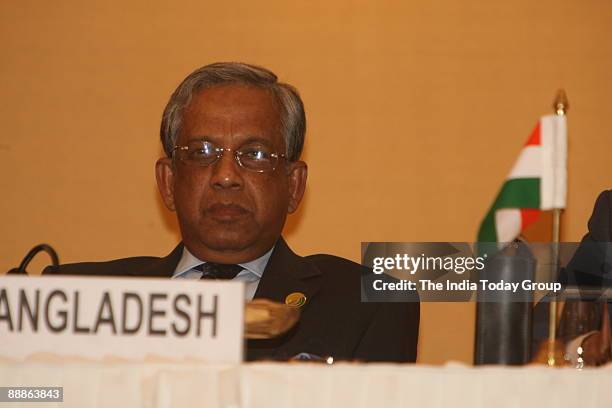
Bangladesh Chief Adviser Muhammad Yunus recently visited China and urged Beijing to extend its economic influence to the country, mentioning that India's northeastern states being landlocked could be seen as an opportunity. The remark, made during Yunus' trip, has sparked controversy on social media. Yunus also called Bangladesh the only guardian of the ocean in the region, and stated that this could be a huge opportunity for China to extend its economy.

During an Eid al-Fitr prayer speech, Turkish President Recep Tayyip Erdogan used strong language, calling for the destruction of Israel. He also referred to Allah as "al-Qahhar" and wished for mercy upon martyrs and a speedy recovery for veterans. In his nationwide holiday message, Erdogan criticized the ongoing violence in Gaza and called for action from Western countries. Israel's Foreign Minister Gideon Sa’ar responded to Erdogan's statements, condemning him as antisemitic and dangerous to the region and his own people.
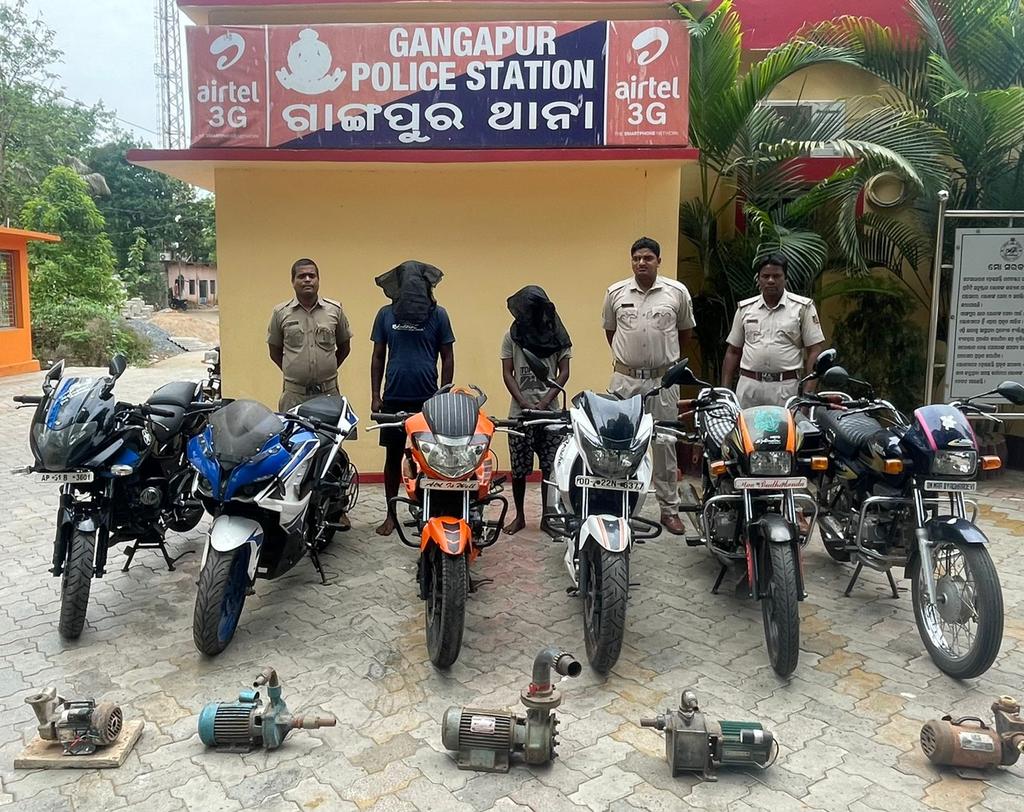
Inspector Rakesh Tripathi and his team were met with hostility from villagers during a motorcycle recovery operation in Telenga village, Odisha. The suspects managed to escape, prompting an intensified manhunt from authorities. The incident illustrates ongoing tensions within local communities and the need for cooperation to ensure justice is served.

The Arab countries of UAE and Saudi Arabia have officially declared the start of Eid-ul-Fitr today, concluding the holy month of Ramadan. In India, Eid is likely to be celebrated tomorrow, with the exact date depending on the sighting of the crescent moon. As families and friends come together to celebrate, here are some WhatsApp messages to share with loved ones.

After a month of fasting during Ramadan, the crescent moon has been sighted in Saudi Arabia, signaling the end of the holy month. Muslims living in Gulf countries will celebrate Eid-ul-Fitr on March 30, 2025 with traditional prayers, charity, gift-giving, feasting, and visiting relatives. More than just a religious holiday, Eid ul Fitr is a celebration of love, gratitude, and family unity that Muslims around the world look forward to every year.
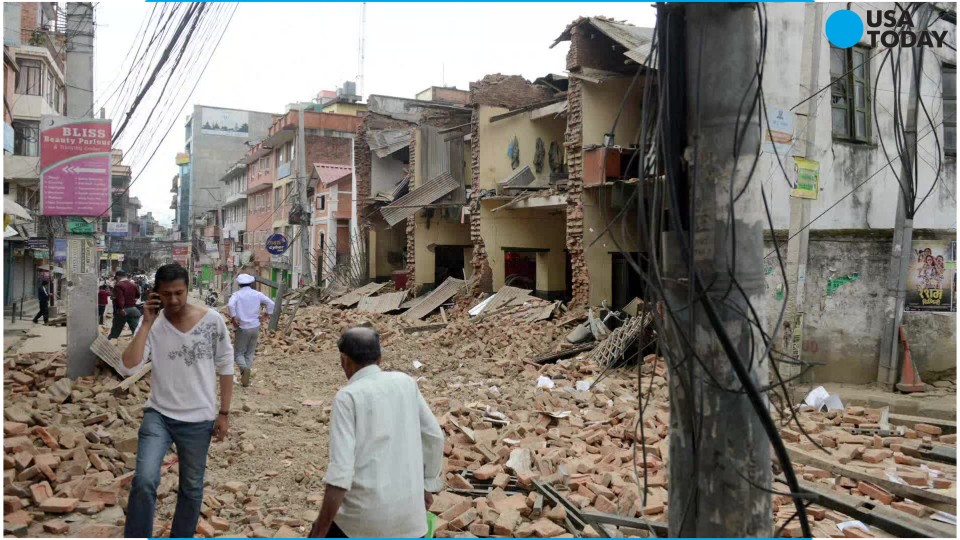
In response to two devastating earthquakes hitting Myanmar, India has launched ‘Operation Brahma’ to send 15 tonnes of relief material. The aid was transported by an Indian Air Force C-130J aircraft and includes tents, blankets, food packets, and essential medicines. Indian Prime Minister Narendra Modi offered assistance and External Affairs Minister Dr S Jaishankar shared visuals of the aid arriving in Yangon. India acted as a “first responder” to assist the people of Myanmar in the aftermath of the natural disaster.

In British Columbia, a young woman's marriage to a member of an India-based "cult group" has been annulled by a judge, who ruled that she did not truly consent to the 2023 wedding. The woman claimed to have been manipulated and overwhelmed by the man and his family's constant advances, which even included bringing a religious gift to her workplace. The ruling sheds light on the often-hidden issue of forced marriages in certain religious communities and the legal recourse available to those who have been coerced into marriage.